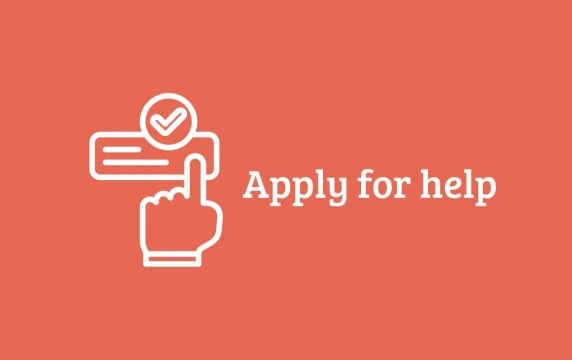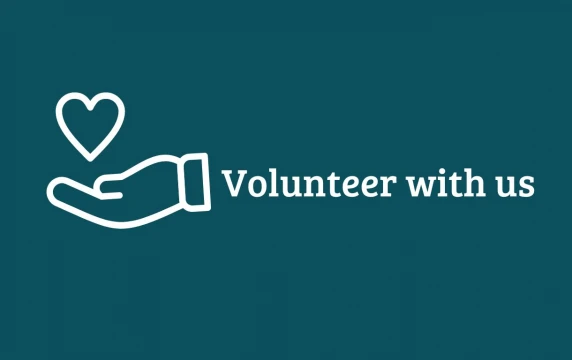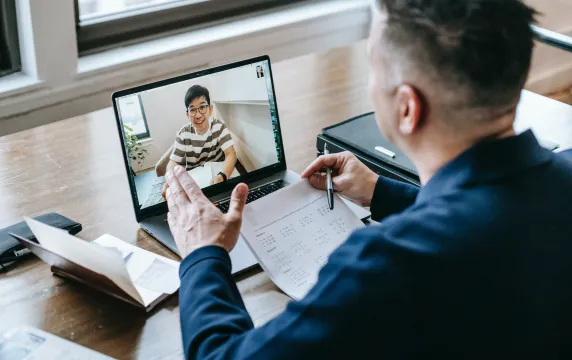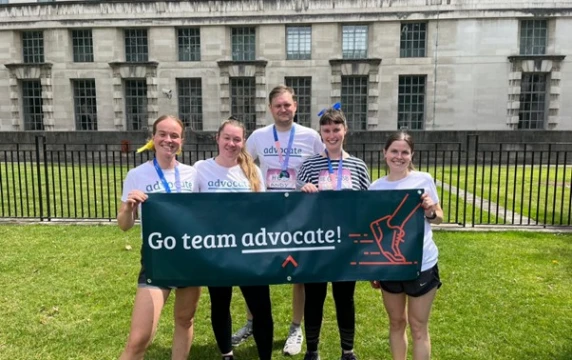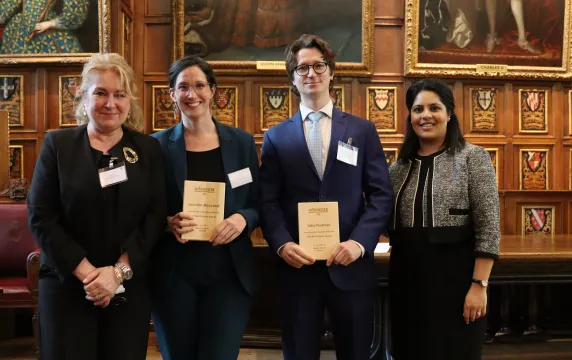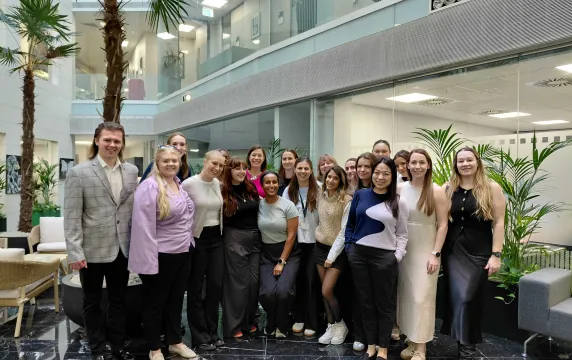Deborah Tompkinson
Advocate panel member and Pro Bono Ambassador, Deborah Tompkinson, tell us about her experiences of pro bono and how it introduced her to the importance of the Vulnerable Witness initiative.

At what stage in your career did you take on your first pro bono case?
While a pupil, through the Free Representation Unit.
Why did you decide to undertake pro bono work?
To gain experience originally but later (and now) because I could see how desperately it was needed.
What was the most memorable case you worked on, and what did you do?
A client with learning and mental health difficulties was defending allegations which would, in a criminal court, have amounted to a cunning fraud. I learned 2 very valuable things. First, the disgracefully unjust impact on access to justice of the removal of civil legal aid. She lived in a substantial county town south of London, where access to justice was extremely scarce. The legal aid application form was too long, too complex, and wholly unfit for use by a person who was illiterate. The Exceptional Cases Funding Unit turned her down on the grounds that as she had a barrister she had "pro bono funding"(sic).
Second, I undertook Vulnerable Witnesses training to gain a greater understanding of her needs and how to help. Since there was no legal aid, I could not get her an independent expert, so I obtained civil procedure rules compliant evidence from her treating specialist which both explained her vulnerabilities, and recommended the adjustments that would need to be made to enable her to give best evidence in court.
I could then guide her through a mediation with the other side, having introduced them to the novelty of the Advocate's Gateway Toolkits for Vulnerable Witnesses. The case against her was discontinued at an early stage. That was my primary objective because it was what my client most needed. However, she remained involved as a witness. I continued to act as an amicus curiae, to present the case for her needs as a witness at a case management conference and later at pre-trial review, where a truly wonderful circuit judge, who clearly knew the initiative for vulnerable witnesses, made all the necessary orders to limit cross-examination so as to enable her to give best evidence.
There being no money for an intermediary, I agreed to attend to assist her and the court (it is important for vulnerable witnesses to have a trusted person in court, not just for support, but to watch for signs of distress). Although a barrister is not an intermediary, the judge considered that even an unqualified friendly face in court was better than nothing. On the day of trial, the remaining defendant conceded that he would not seek to cross-examine her, sparing her the ordeal. At the end of this case, I had learned a lot. I had had to develop a number of very unorthodox tactics in order to achieve the result my client needed.
What effect did pro bono work have on your career?
It introduced me early to the Vulnerable Witnesses initiative (which is not something that is yet well-known among general civil counsel). It has made me re-assess my approach to aspects of my advocacy, which I believe has improved as a result. It has also handed me a tool which can be used both tactically and operatively to promote a more level playing field and greater justice for clients who might otherwise suffer injustice because of a lack of awareness of their vulnerabilities.
What is the most rewarding thing about doing pro bono work?
Knowing that one has helped someone who might otherwise not have achieved justice.
What advice would you give to any barrister unsure about whether to start doing pro bono work?
Just do it. The need is acute. Pick something simple and in your own area of practice, if possible, to start with. Move on to something more difficult as you gain confidence. If in doubt – for example, as to whether a case is really suitable for pro bono work - do not hesitate to contact the Advocate reviewer who approved it in the first place. They often have to take a decision on less material that is eventually available to you.
A quarter of the Bar of England and Wales are signed up to our panel of volunteers. Are you? To join the panel, download the registration form here, and soon, you'll be able to say "I Do Pro Bono" too!

